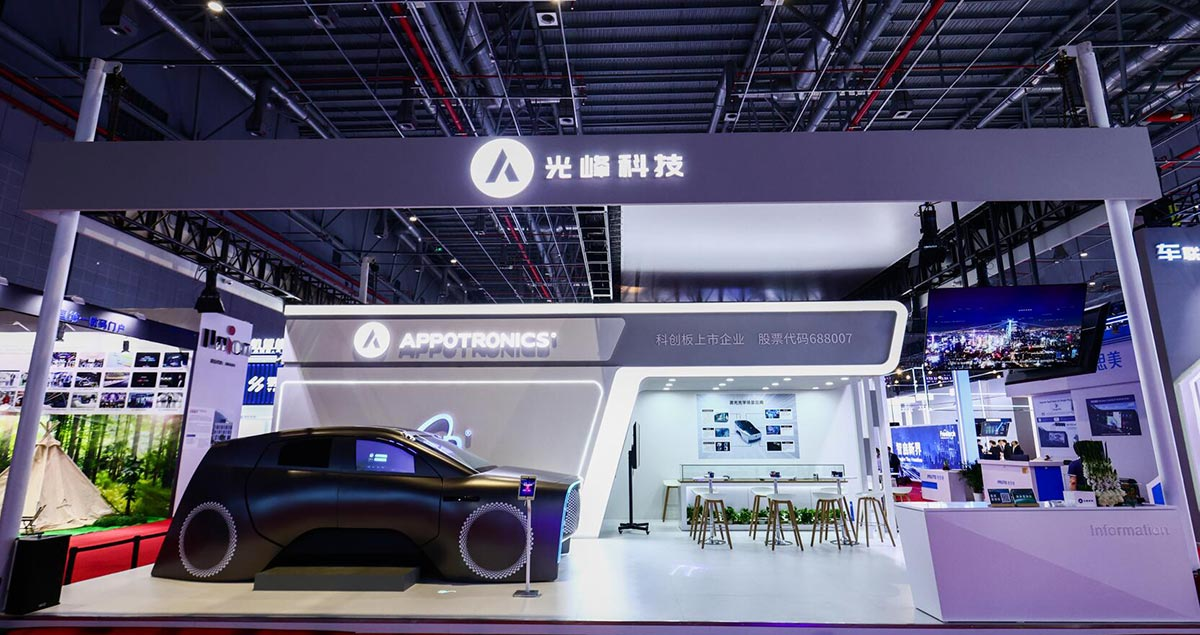
(Appotronics at the April 2023 Shanghai auto show. Image credit: Appotronics)
While people are still amazed by the unprecedented entertainment experience of big screens in cars, a little-known Chinese tech company is making a big push to bring its technology to the automotive industry, hoping to take the smart electric vehicle (EV) experience to a new level.
Imagine a vehicle that automatically recognizes you as you approach and shows you the interior temperature, remaining range, and greets you with text on the window. Inside the vehicle, the physical screens for infotainment are replaced and any of the surfaces can be used to display text and images.
That's the scenario described in an exclusive interview with CnEVPost by Li Yi, founder, chairman and CEO of Appotronics Corp, a Shenzhen-based developer of laser display technology that promises to power some of the most intriguing features of smart EVs over the next decade.

(Li Yi, founder, chairman and CEO of Appotronics.)
While most ordinary Chinese consumers may not have heard of Appotronics, it's already a global leader in laser display technology.
The company was founded in 2006 and announced its ALPD (Advanced Laser Phosphor Display) technology in 2007, which was the cornerstone of its subsequent product launches.
In 2019, Appotronics went public on China's Nasdaq-style sci-tech innovation board, also known as the STAR market, and has a current market capitalization of about RMB 11 billion ($1.5 billion).
Its founder, Li, was admitted to China's top-ranked Tsinghua University at the age of 16, majoring in automotive-related subjects but with a personal interest in physics.
Appotronics reported revenue of RMB 1.07 billion in the first half of the year, with a net profit of RMB 74.91 million and a gross margin of 37.7 percent, according to its semiannual report released in August.
In the second quarter, the company had revenue of RMB 614 million yuan, net profit of 61.26 million yuan and a gross margin of 39.44 percent.
Appotronics' technology is mainly used in movie theaters, specialty displays, and consumer electronics, and they brought in about RMB 2.5 billion in revenue for all of last year.
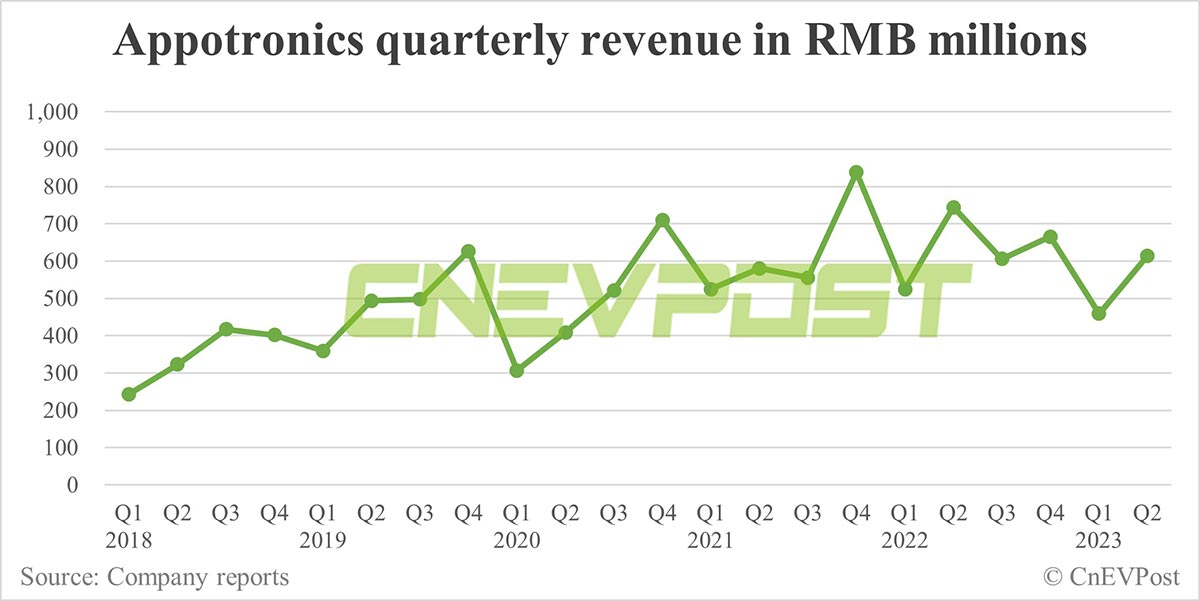
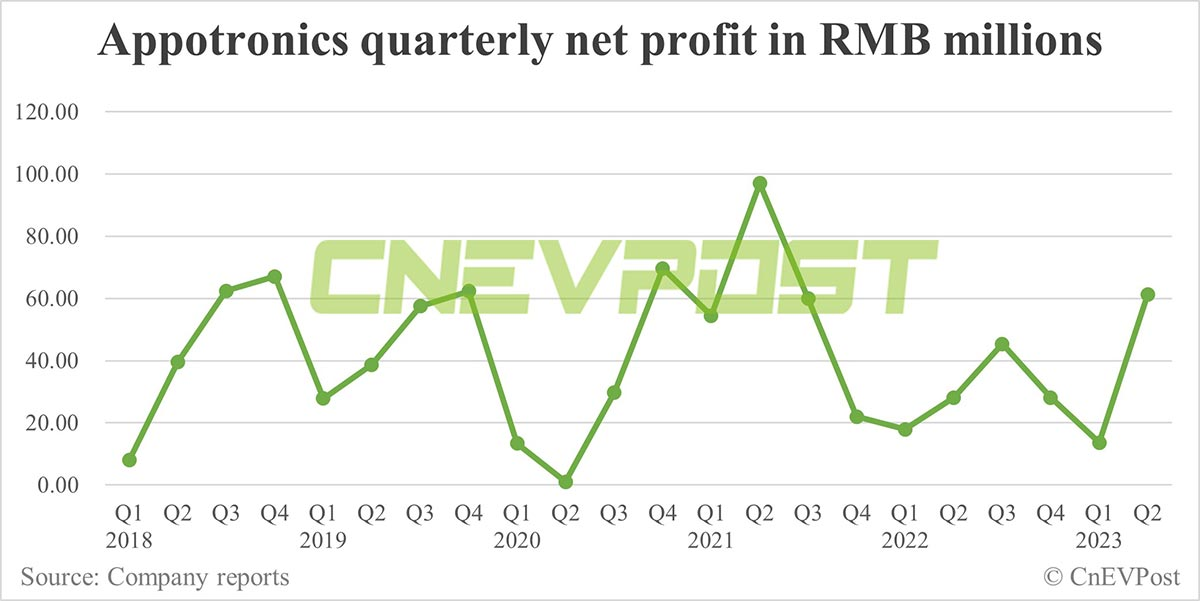
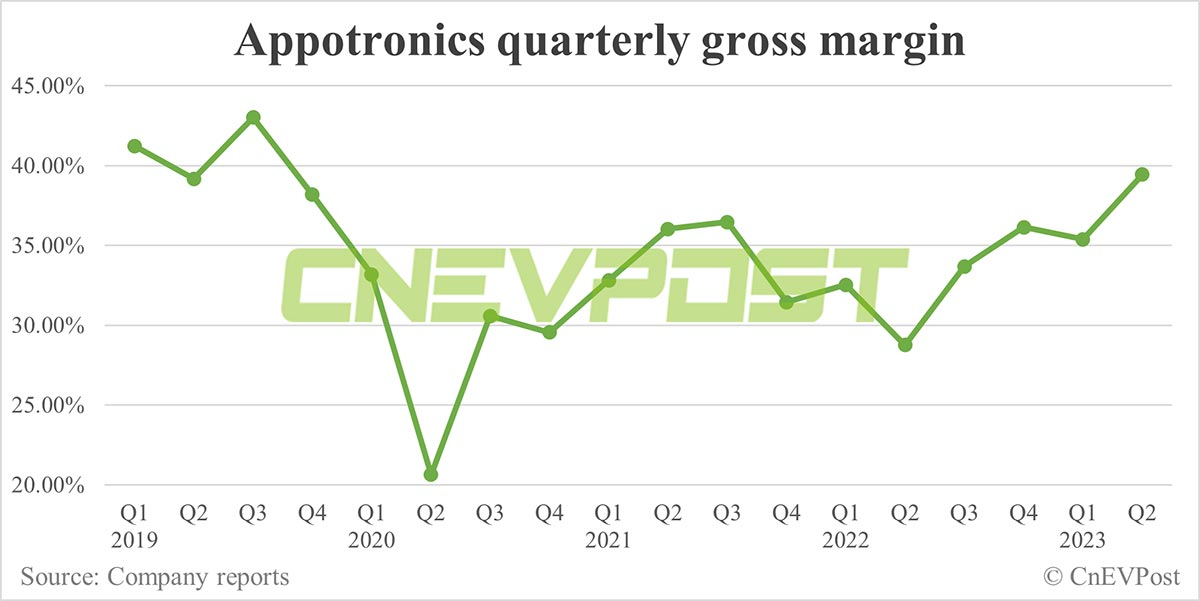
The rapid growth of China's EV industry is seen by many as presenting a once-in-a-century opportunity.
In the January-August period, retail sales of new energy vehicles (NEVs), including plug-in hybrids (PHEVs) and battery electric vehicles (BEVs), reached 4.44 million units in China, contributing to 33.6 percent of all passenger car sales, according to the China Passenger Car Association (CPCA).
The Rocky Mountain Institute, a US-based nonprofit organization, projected in a recent report that EVs will account for 62 percent to 86 percent of global vehicle sales by 2030, with China's EV market share reaching at least 90 percent.
Li told CnEVPost in an interview last week that Appotronics officially entered the smart EV space as a supplier last year and has already partnered with several automakers.
In fact, Appotronics' technology made an international debut earlier this year. German luxury automaker BMW unveiled its BMW i Vision Dee concept at the Consumer Electronics Show (CES) in Las Vegas in January, showcasing its vision for the future of digital experiences both inside and outside the car.
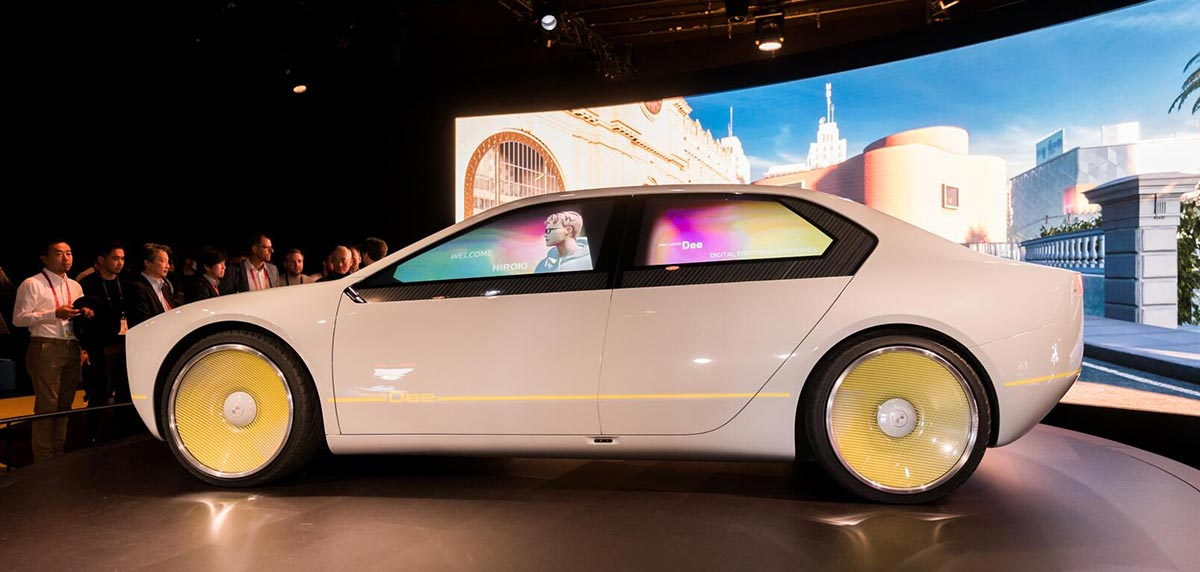
The concept features the debut of four-window fusion display technology, the heart of which is supplied by Appotronics.
Dee, which stands for Digital Emotional Experience, projects a virtual image of the driver onto the side windows, resulting in a new human-vehicle interaction.
Appotronics is ramping up its efforts to use its laser display technology for smart EVs, Li told CnEVPost, adding that half of the company's research and development team has now been redirected to focus on that area.
As of June 30, Appotronics had 465 R&D employees, or 31.33 percent of the company's total headcount, according to its semiannual report.
In the first half of the year, Appotronics' R&D expenses reached RMB 78.6 million yuan, up 9.96 percent year-on-year, mainly due to increased R&D investment in its automotive-related business, its semiannual report said.
We were curious whether this shift in R&D resources would weaken Appotronics' existing mature business, and Li dispelled such concerns.
Appotronics' main businesses are already running efficiently, and don't require as high an R&D investment as they did in the early exploratory phase. The automotive-related business, on the other hand, is in the exploratory phase and needs to maintain sufficient R&D intensity, he said.
"It's good timing for us now, the first half of this historic (EV) transformation is the energy revolution, while the second half with the information revolution has just begun," Li said.
"What we're talking about is a market in the hundreds of billions of RMB," he added.
When asked by CnEVPost about the kind of experience Appotronics' technology will bring to the average consumer, Li gave the answer at the beginning of this article.
In the automotive sector, Appotronics is targeting both inside and outside displays as well as providing lighting solutions.
Appotronics said its innovative architecture of ALPD technology, which dramatically reduces the cost of laser light sources, is the world's first laser display technology to be commercialized on a large scale.
ALPD is the smallest, brightest and most efficient laser light source technology available, and is already widely used in movie theaters, entertainment events, and commercial as well as home projection, according to the company.
Li provided several examples of how Appotronics' technology will be used in the automotive sector.
Like BMW's concept car, the windows can tell you the temperature of the car and the mileage remaining before you even enter the car.
Inside the car, rear passengers can have a theater-like experience with projections.
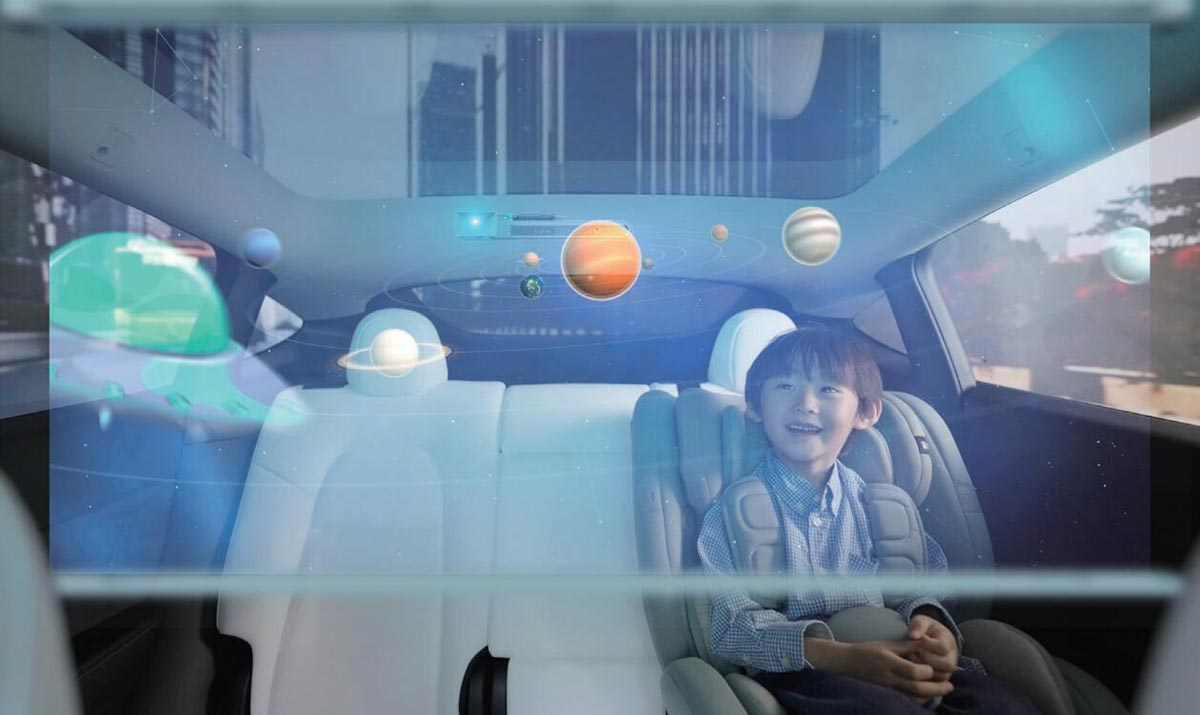
Any surface in the cockpit can be used for displaying information.
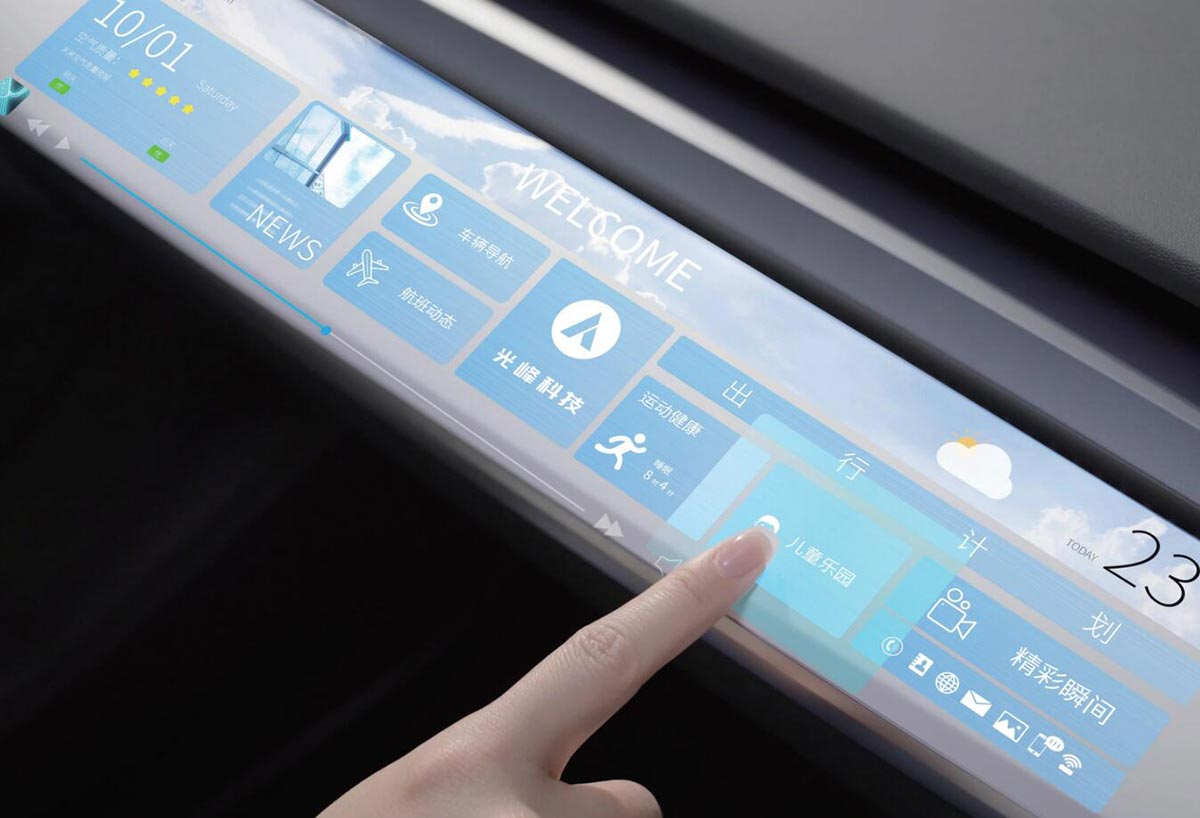
When you use a ride-hailing service, the driver can greet you through a projection of the surface of the window. The projection on the front windshield of the vehicle can become an infotainment system exclusive to the passenger.
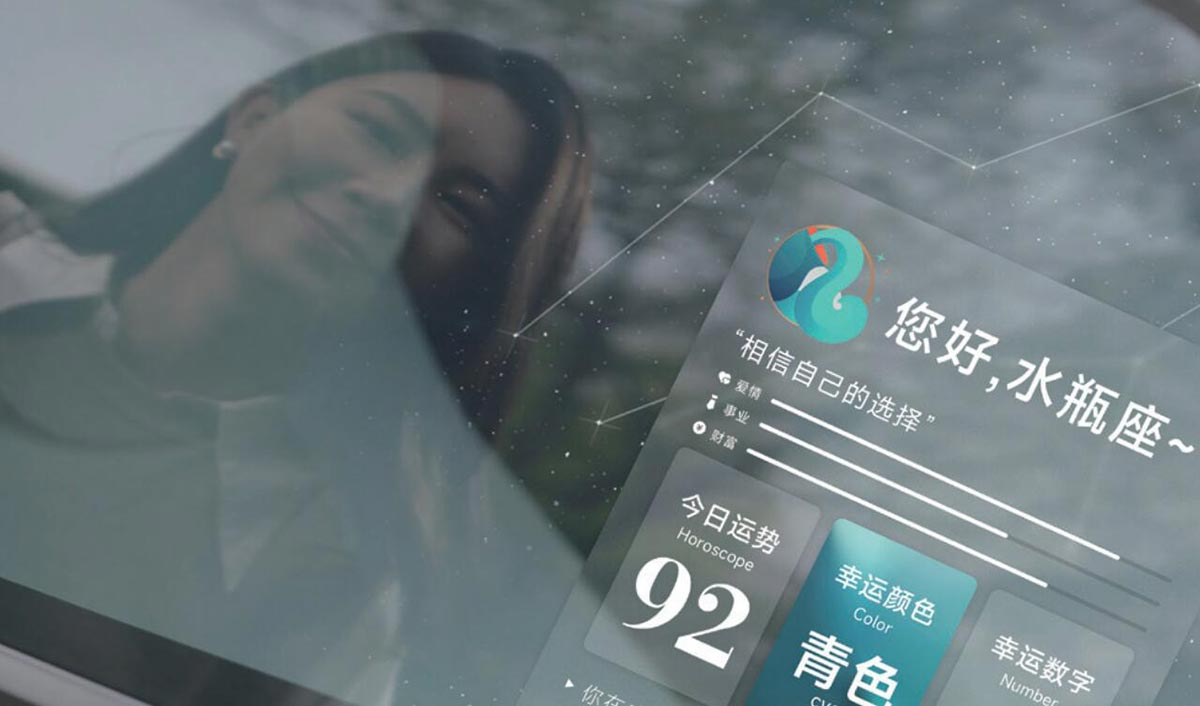
For the driver, Appotronics' technology makes it possible to have an extra-large AR HUD that displays even more information about the vehicle.
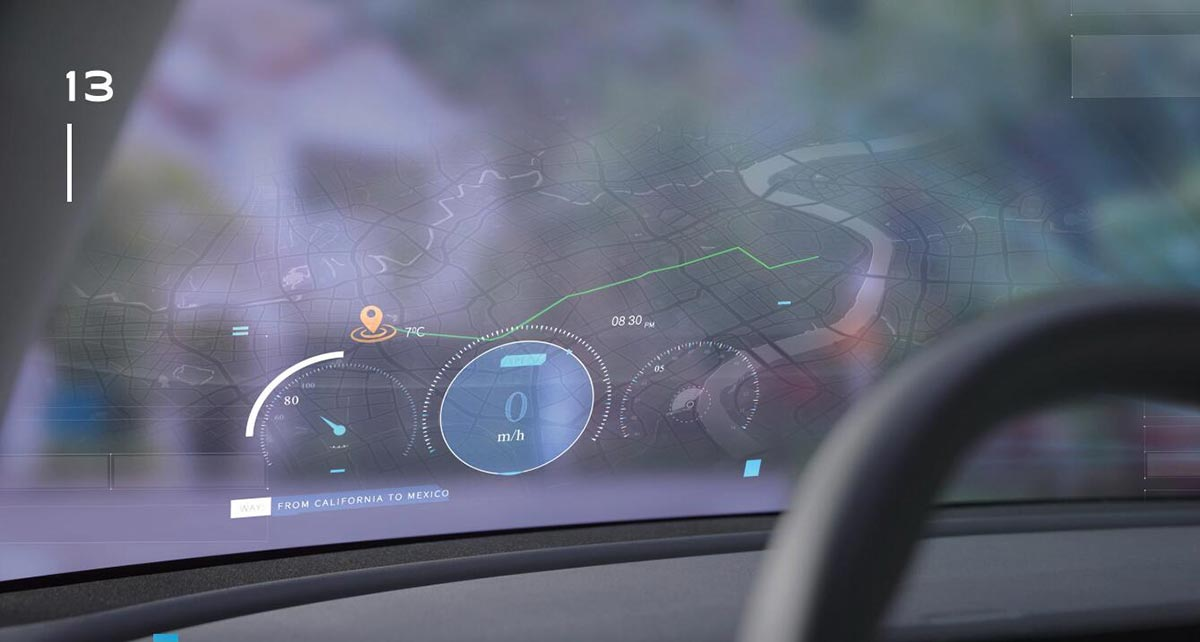
The high-resolution smart headlights allow the vehicle to project clear text and pictures on the ground.
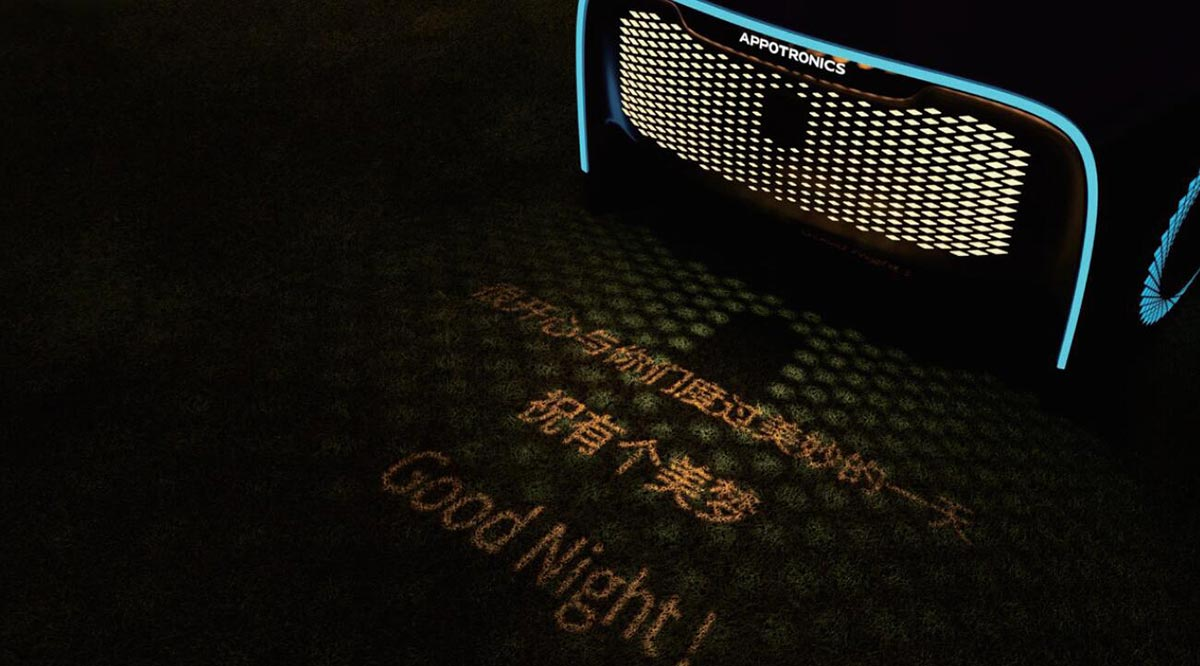
Although it only formally ventured into the automotive field last year, Appotronics has already entered into cooperation with automakers including BMW, BYD, Seres Group and Beijing Electric Vehicle Co, as well as parts suppliers including Hasco Vision, and will supply them with products including cockpit displays and lamp modules.
Li told CnEVPost that in addition to the company's technology, fast customer response is also key to why these automakers chose to work with Appotronics.
Li said Appotronics is continuing to expand its market and is in communication with major mainstream domestic and international automakers, including those in China and the US.
Appotronics' main goal right now is to get the cost of the product to continue to come down to a more acceptable level.
"I think it's going to take some time, and we're optimistic, but we wouldn't expect it to happen overnight," Li said.